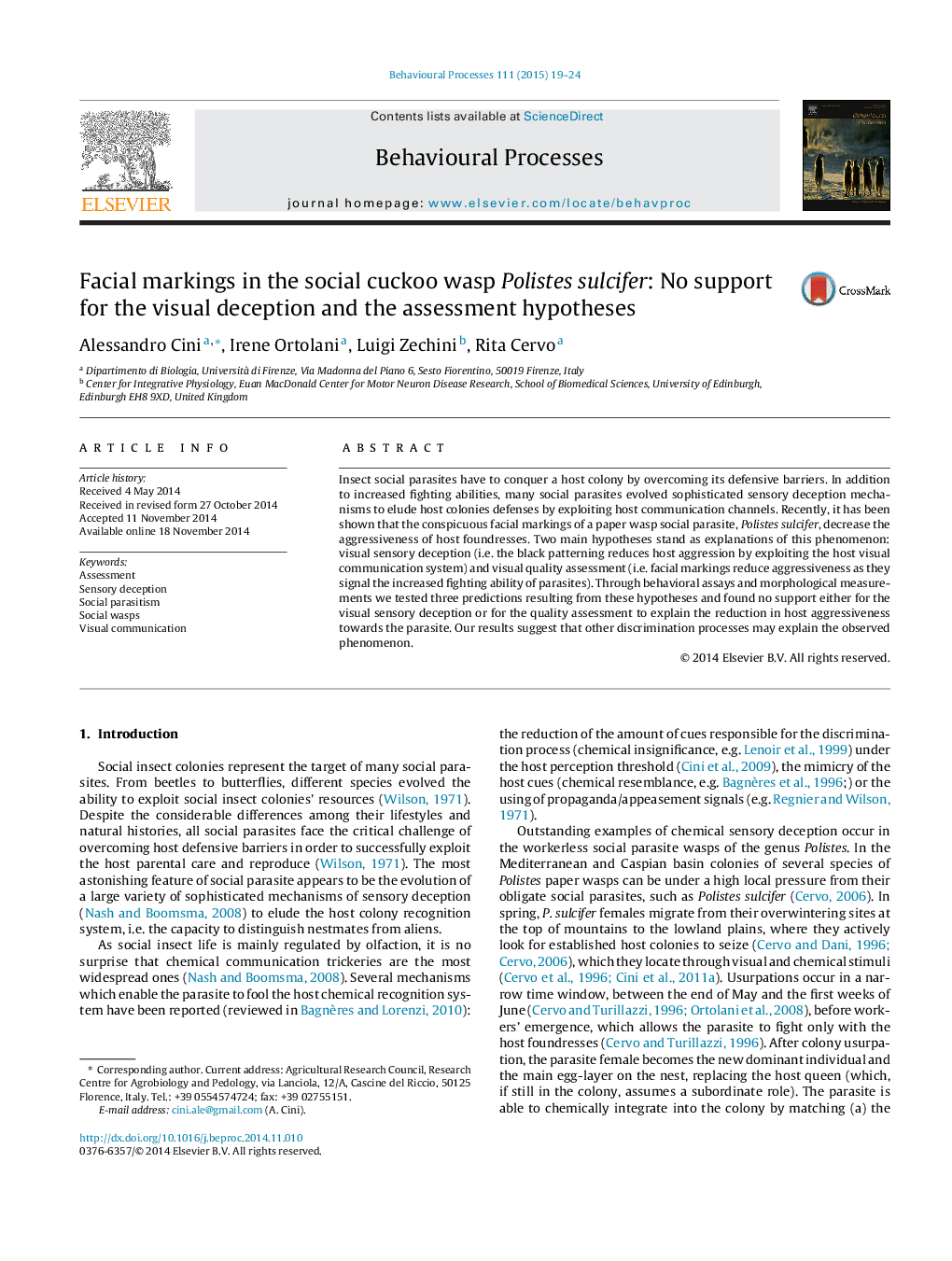| Article ID | Journal | Published Year | Pages | File Type |
|---|---|---|---|---|
| 8497180 | Behavioural Processes | 2015 | 6 Pages |
Abstract
Insect social parasites have to conquer a host colony by overcoming its defensive barriers. In addition to increased fighting abilities, many social parasites evolved sophisticated sensory deception mechanisms to elude host colonies defenses by exploiting host communication channels. Recently, it has been shown that the conspicuous facial markings of a paper wasp social parasite, Polistes sulcifer, decrease the aggressiveness of host foundresses. Two main hypotheses stand as explanations of this phenomenon: visual sensory deception (i.e. the black patterning reduces host aggression by exploiting the host visual communication system) and visual quality assessment (i.e. facial markings reduce aggressiveness as they signal the increased fighting ability of parasites). Through behavioral assays and morphological measurements we tested three predictions resulting from these hypotheses and found no support either for the visual sensory deception or for the quality assessment to explain the reduction in host aggressiveness towards the parasite. Our results suggest that other discrimination processes may explain the observed phenomenon.
Related Topics
Life Sciences
Agricultural and Biological Sciences
Animal Science and Zoology
Authors
Alessandro Cini, Irene Ortolani, Luigi Zechini, Rita Cervo,
